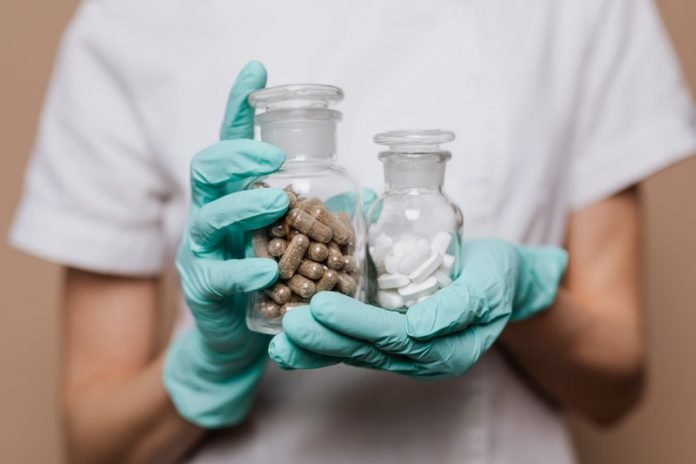
In a new study, researchers found an experimental antiviral drug can significantly speed up recovery for COVID-19 outpatients—patients who do not need to be hospitalized.
They found patients who received a single injection of peginterferon-lambda were over four times more likely to have cleared the infection within seven days.
The effect was most pronounced in those with the highest viral levels. There is also a trend towards quicker improvement of respiratory symptoms in the treatment group.
This discovery could become an important intervention to treat infected patients and help curb community spread, while COVID-19 vaccines are rolled out this year.
The research was conducted by a team at University Health Network.
In the study, the team tested 60 patients. Among them, five went to emergency rooms with deteriorating respiratory symptoms.
Of those, four were in the placebo group, while only one was in the group which received the actual drug.
Bringing down the virus level quickly prevents people from getting worse and likely reduces the risk of spreading the disease to others. This may have an important additional public health impact.
The team found people with higher viral levels (above 1 million copies per mL) were much more likely to clear the infection with treatment than placebo:
79% in the treatment arm compared to 38% in the placebo group, and virus levels decreased quickly in everyone in the treatment group.
Rapid clearance has many benefits, particularly in those with high viral levels, as those cases are associated with more severe disease and a higher risk of transmission to others.
Interferon-lambda is a protein produced by the body in response to viral infections. It has the ability to activate a number of cellular pathways to kill invading viruses.
The coronavirus that causes COVID-19 prevents the body from producing interferons, which is one way it avoids being controlled by the body’s immune system.
Treatment with interferon-lambda activates those same virus-killing pathways in the cells.
Because interferon activates many virus-killing pathways, resistance due to ‘new strains’ of the virus, which could be an issue with some therapies, is not a concern with interferon-lambda.
Interferon-lambda is different from other interferons because it uses a receptor that is only present in some tissues in the body.
It is very active in the lung, the liver, and the intestine, all places where the COVID-19 virus is able to replicate, but it is not active in other places leading to a lot fewer side effects than other interferons.
In the study, those treated with interferon-lambda had similar side effects to those who received a placebo.
One author of the study is Dr. Jordan Feld, a liver specialist at Toronto Centre for Liver Disease.
The study is published in Lancet Respiratory Medicine.
Copyright © 2021 Knowridge Science Report. All rights reserved.



